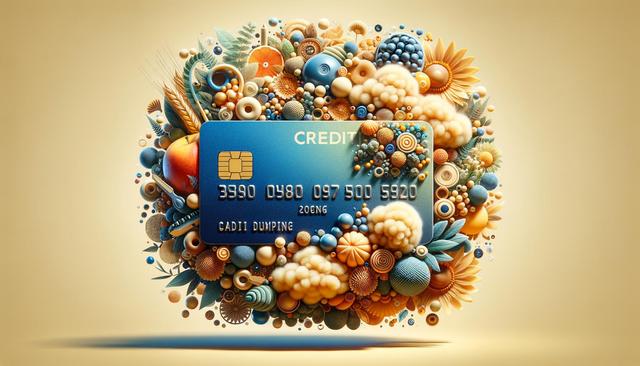
Choosing Wisely: Find the Best Credit Card for You
Understanding Credit Card Features
Before selecting a credit card, it’s important to understand the various features that differentiate one card from another. Credit cards can offer a wide range of benefits, such as low interest rates, rewards programs, and travel insurance. However, not all cards are created equal, and what works for one person may not be suitable for another. Evaluating your spending habits and financial goals is the first step toward making a smart choice.
Key credit card features to consider include:
- Annual Percentage Rate (APR)
- Annual fees
- Introductory offers
- Rewards structures
- Foreign transaction fees
- Balance transfer options
Some cards are geared toward frequent travelers, offering rewards points for flights and hotel stays, while others focus on everyday purchases like groceries or gas. Knowing which categories you spend most in can help you choose a card that aligns with your needs and maximizes your rewards.
Types of Credit Cards and Their Benefits
There are several types of credit cards available in the market, each tailored to specific consumer needs. Understanding these categories can simplify the decision-making process and help you find a card that fits your lifestyle.
- Rewards Credit Cards: These cards offer points, miles, or cash back for purchases. They are suitable for users who pay their balance in full each month and want to earn perks on their spending.
- Balance Transfer Cards: Ideal for individuals looking to pay down existing debt. These cards often come with an introductory 0% APR on balance transfers, giving you a window to reduce your balance without accruing interest.
- Secured Credit Cards: Designed for those with limited or poor credit history. These cards require a security deposit and can help users build or rebuild credit over time.
- Student Credit Cards: Specifically for college students, these cards offer lower credit limits and educational resources to encourage responsible credit use.
Choosing a card type that matches your financial situation and spending habits is crucial for making the most of your credit card experience.
How to Evaluate Credit Card Offers
When comparing credit card offers, it’s easy to get distracted by promotional headlines or flashy rewards. However, a deeper look into the terms and conditions can reveal whether a card is truly beneficial for you. Begin by reading the fine print to understand the real cost of using the card.
Here are some important factors to evaluate:
- Interest Rates: Look at both the introductory and ongoing APRs.
- Fees: Consider annual fees, late payment fees, and foreign transaction fees.
- Reward Redemption: Understand how and when you can redeem your rewards. Some cards may require a minimum amount before redemption is allowed.
- Reward Caps: Check if there are limits on the amount of rewards you can earn in a specific category or calendar year.
Using online comparison tools can help streamline this process by allowing you to filter and sort cards based on your preferences. Keep in mind that the most suitable card is one that offers long-term value, not just short-term perks.
Using Your Credit Card Responsibly
Owning a credit card is a financial responsibility. While the rewards and benefits can be appealing, improper use can lead to debt and credit score damage. To fully benefit from your credit card, it’s crucial to practice good credit habits.
Tips for responsible credit card use include:
- Paying your balance in full each month to avoid interest charges
- Keeping your credit utilization below 30% of your available limit
- Monitoring your statements for unauthorized transactions
- Setting up alerts for due dates and spending thresholds
Maintaining a strong credit history not only helps you qualify for better credit offers in the future but also affects other aspects of your financial life, such as loan approvals and insurance rates. Responsible use ensures that your credit card remains a valuable financial tool, not a source of stress.
Maximizing Rewards and Perks
Once you’ve selected a credit card that fits your lifestyle, the next step is to make the most of its rewards and perks. Many credit cards offer bonus categories, sign-up bonuses, and additional benefits that can enhance your everyday spending.
To get the most out of your card:
- Strategically use your card for purchases that fall into high-earning categories
- Enroll in promotional offers or loyalty programs associated with your card
- Take advantage of travel benefits like airport lounge access, travel insurance, or concierge services
- Utilize partner discounts for dining, shopping, or entertainment
Regularly reviewing your rewards balance and redemption options can also help ensure you don’t miss out on valuable opportunities. Some rewards may expire or depreciate in value over time, so staying informed is key. By aligning your spending with your card’s strengths, you can turn everyday purchases into meaningful returns.
Conclusion: Making the Right Choice for Your Financial Goals
Credit cards can be powerful tools when used wisely. From earning valuable rewards to building a solid credit history, the right card offers both convenience and opportunity. The key is to assess your financial habits, compare features carefully, and commit to responsible usage.
Whether you’re a frequent traveler, a student starting out, or someone focused on managing debt, there’s likely a credit card designed to support your goals. By staying informed and making thoughtful choices, you can unlock the full potential of your credit card while maintaining your financial well-being.


